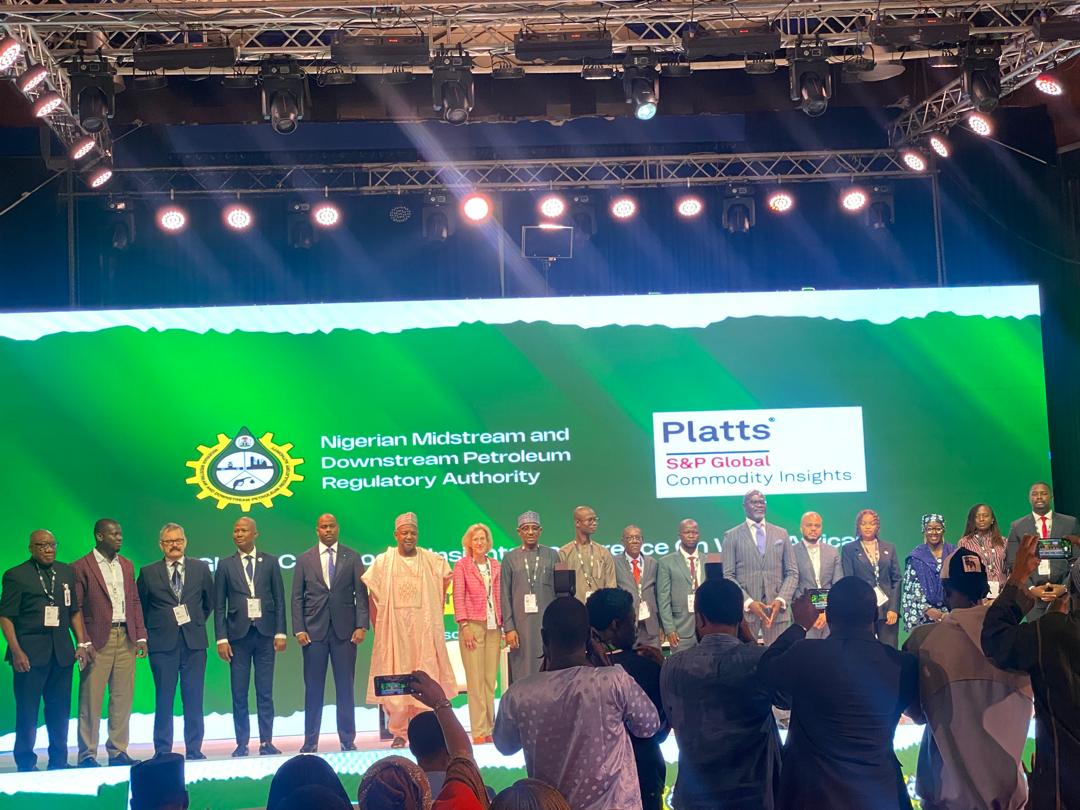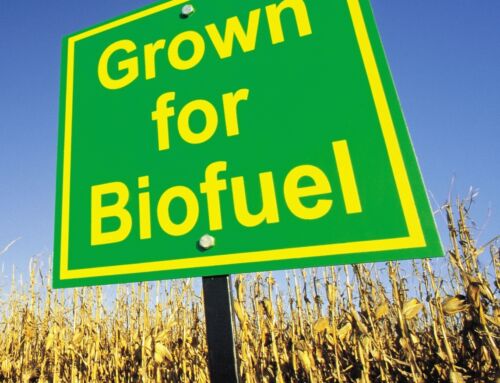The Nigerian Midstream and Downstream Petroleum Regulatory Authority (NMDPRA) / PLATTS S&P Global Commodity Insights 2025 Conference on the West African Refined Fuel Market
Date: July 22nd – July 23rd, 2025
Transcorp Hilton, Abuja
The second day of the 2025 Global Commodity Insights Conference on the West African Refined Fuel Market continued the momentum with a deep dive into regional collaboration, policy harmonization, infrastructure development, and pricing mechanisms for West Africa’s refined fuels sector.
Disclaimer: The views and opinions expressed in this article are solely those of the author.
AFRICAN ENERGY SERIES
Plenary Session 4
Speaker: Mr. Frank Zeng, Market Development & Engagement Team, Platts (S&P Global Commodity Insights)
Topic: Developing Regional Markets and Price Benchmarks – Case Studies with a Focus on African LPG Markets
Mr. Frank Zeng explored global case studies on how regional markets and pricing benchmarks emerge and evolve. He provided particular insights into the trajectory of African LPG markets, setting the context for broader discussions on regional reference pricing systems.
Panel Session 2: Policy Harmonization – Aligning West African Regulatory Frameworks
Panellists:
- Dr. Mustapha Lamorde, ED HSEC, NMDPRA
- Godwin Kudzo Tameklo, CEO, National Petroleum Authority (Ghana) (represented by the Director of Economic Regulation and Planning, NPA)
- Ibrahim Nomao, Director General, ARSE, Niger (joined virtually)
- Brima Mohammed Baluwa Koroma, Director General, NPRA, Sierra Leone
- Alain Adjoumane, Head of Evaluation & Statistics, Ministry of Petroleum, Cote d’Ivoire
Moderated by: Dr. Habib Nuhu, Managing Partner/CEO, Avante Consultants and Advisors Ltd
Key Takeaways:
- Africa’s low energy access and fragmented regulatory systems hinder downstream petroleum sector growth.
- A strong call was made for sustained dialogue between policymakers, regulators, and technical experts to address cross-border energy challenges.
- The inclusion of underrepresented groups in energy policy design and leadership was emphasized.
- Improving energy access was tied directly to Africa’s long-term economic growth and poverty reduction.
- Challenges such as weak infrastructure, limited funding, and inconsistent implementation of energy efficiency policies were identified.
- Reliable, regionally comparable data is critical for regulatory decision-making and performance measurement.
- Regional collaboration—especially in shared infrastructure, policy alignment, and funding strategies—was seen as essential for long-term value creation.
- Panellists called for harmonized product quality standards to unlock economies of scale and cost efficiencies in procurement.
- The session concluded with a collective call for synchronized compliance, safety, and environmental strategies to drive joint investment and integration.
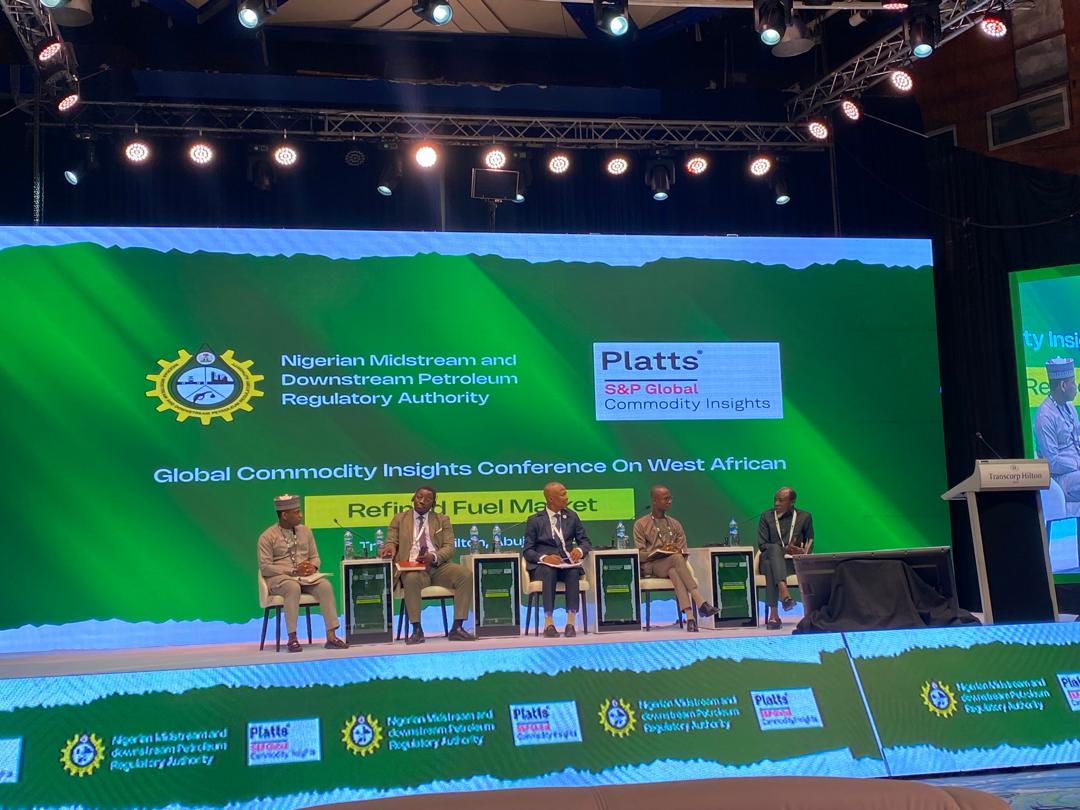
Panel Session 2: Policy Harmonization – Aligning West African Regulatory Frameworks
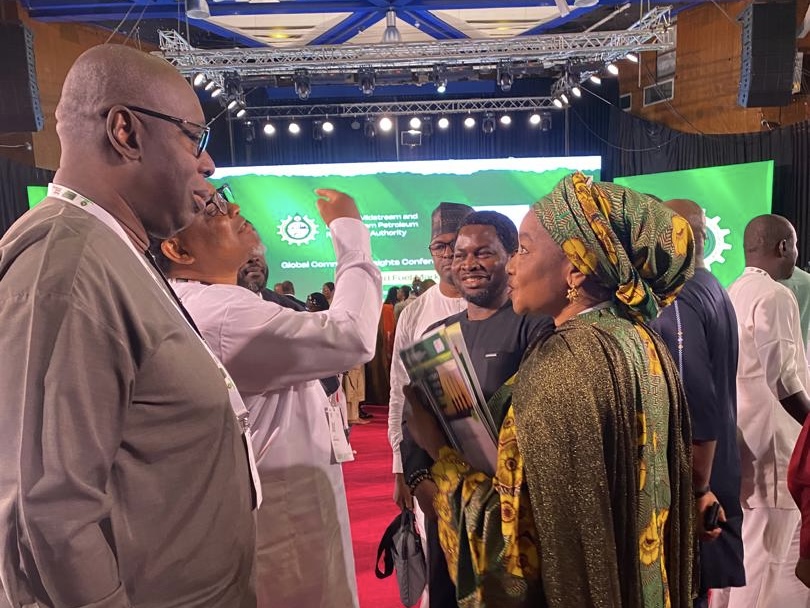
Left to right – Mr. Clement Isong, CEO, MEMAN | Mrs. Maijiddah Abdulkadir, Regional Coordinator North Central, NMDPRA
Panel Session 3: Mechanisms for Pricing, Trade & Market Stability
Panellists:
- Mr. Clement Isong, CEO, MEMAN
- Dr. Timothy Okon, Managing Partner, TENO Energy
- Mr. Francesco Di Salvo, Global Director, Clean Refined Products Pricing, S&P Global
- Ms. Vera Blei, Head of Market Reporting & Trading Solutions, S&P Global
- Mr. Olufemi Adewole, Executive Secretary, DAPPMAN
Moderated by: Dr. Emeka Akabogu, Senior Partner, Akabogu & Associates
Key Highlights:
- The industry must transition from rhetoric to concrete, actionable market frameworks.
- All stakeholders—refiners, traders, financiers, regulators—have a role in achieving regional pricing systems. Progress will be gradual but deliberate.
- Timely and transparent price data sharing was emphasized, especially from regulators.
- A regional price reference index should be developed to guide regulatory oversight.
- Ongoing cross-border dialogue is needed to ensure competitiveness, transparency, and coherence.
Other insights:
- Formula-based pricing systems must reflect real market conditions, including infrastructure realities and supply chain dynamics.
- Market deregulation is necessary but must be gradual and protective of consumers.
- A call was made for regional frameworks aligned with the PIA (Petroleum Industry Act) to foster healthy competition.
- Regulators must promote fairness by checking anti-competitive behaviour, while enabling both dominant and emerging players to thrive.
- Innovation should be rewarded, but monopolies must be prevented for the sector’s long-term health.

Panel Session 3: Mechanisms for Pricing, Trade & Market Stability
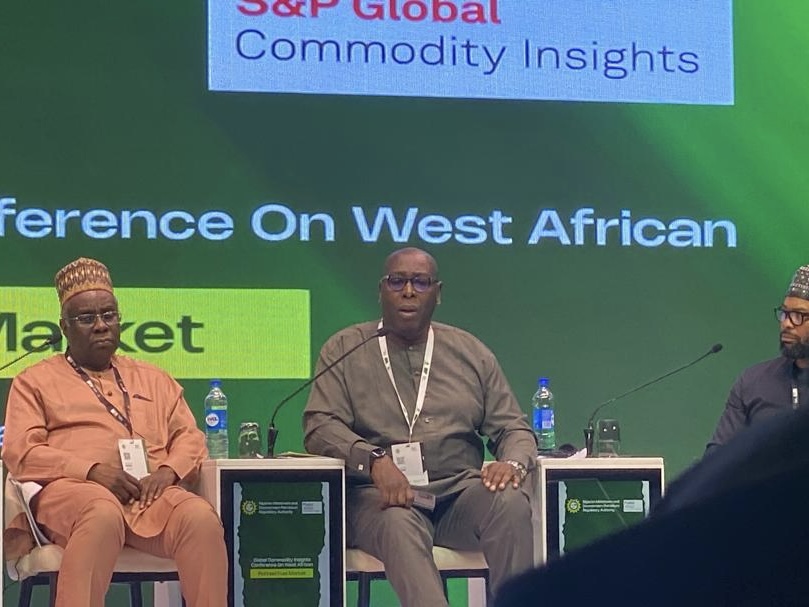
Left to right – Dr. Timothy Okon, Managing Partner, TENO Energy | Mr. Clement Isong, CEO, MEMAN
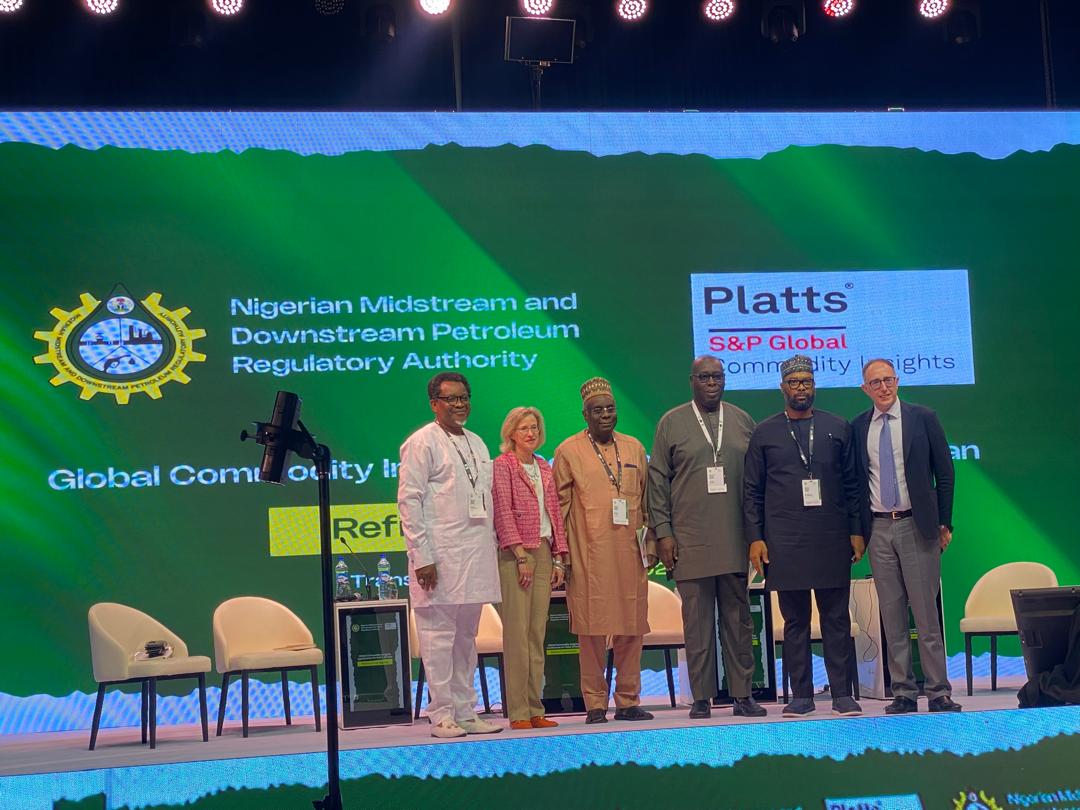
Left to right – Mr. Olufemi Adewole, Executive Secretary, DAPPMAN | Ms. Vera Blei, Head of Market Reporting & Trading Solutions, S&P Global | Dr. Timothy Okon, Managing Partner, TENO Energy | Mr. Clement Isong, CEO, MEMAN | Dr. Emeka Akabogu, Senior Partner, Akabogu & Associates | Mr. Francesco Di Salvo, Global Director, Clean Refined Products Pricing, S&P Global
Panel Session 4: Infrastructure for West African Reference Market Development
Panellists:
- Mr. Anibor Kragha, Executive Secretary, ARDA
- Mr. Gbite Falade, GMD/CEO, Aradel Holdings Plc
- Mr. Francis Ogaree, ED HPPITI, NMDPRA
Moderated by: Mr. Henry Adigun
Key Takeaways:
- Developing a West African Refining Hub requires strong regulatory frameworks, effective project planning, and ESG integration.
- Africa should prioritize resource domestication—ensuring its energy resources serve African needs first.
- Infrastructure development should align with energy security, value addition, and a locally defined transition roadmap.
- Nigeria must avoid working in isolation; regional collaboration will yield more lasting outcomes.
- The continent must ‘future-proof’ its economies and expand last-mile infrastructure access.
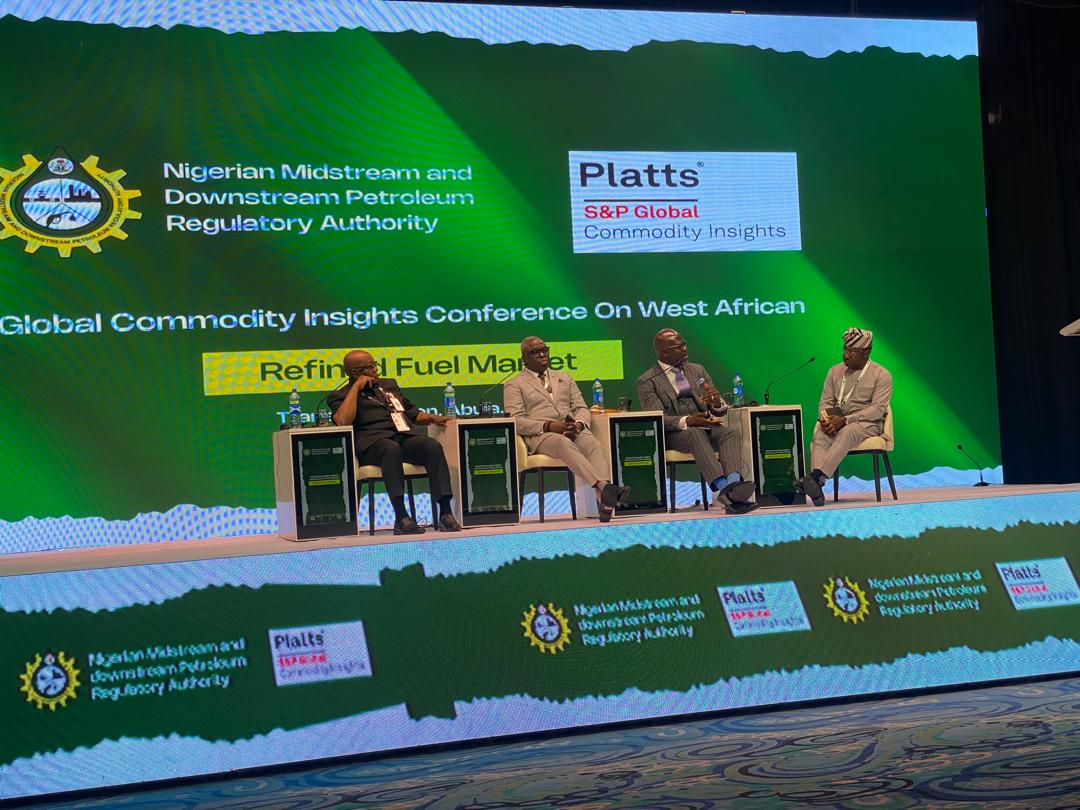
Panel Session 4: Infrastructure for West African Reference Market Development
Special Address: Senator Abubakar Atiku Bagudu, Minister of Budget & Economic Planning
The Honourable Minster:
- Declared the conference a historic milestone for Nigeria, acknowledging President Bola Ahmed Tinubu’s leadership.
- Called for Nigeria to confront its economic reality and leapfrog into becoming a global energy player.
- Reaffirmed support for NMDPRA and pledged his ministry’s collaboration in policy execution.
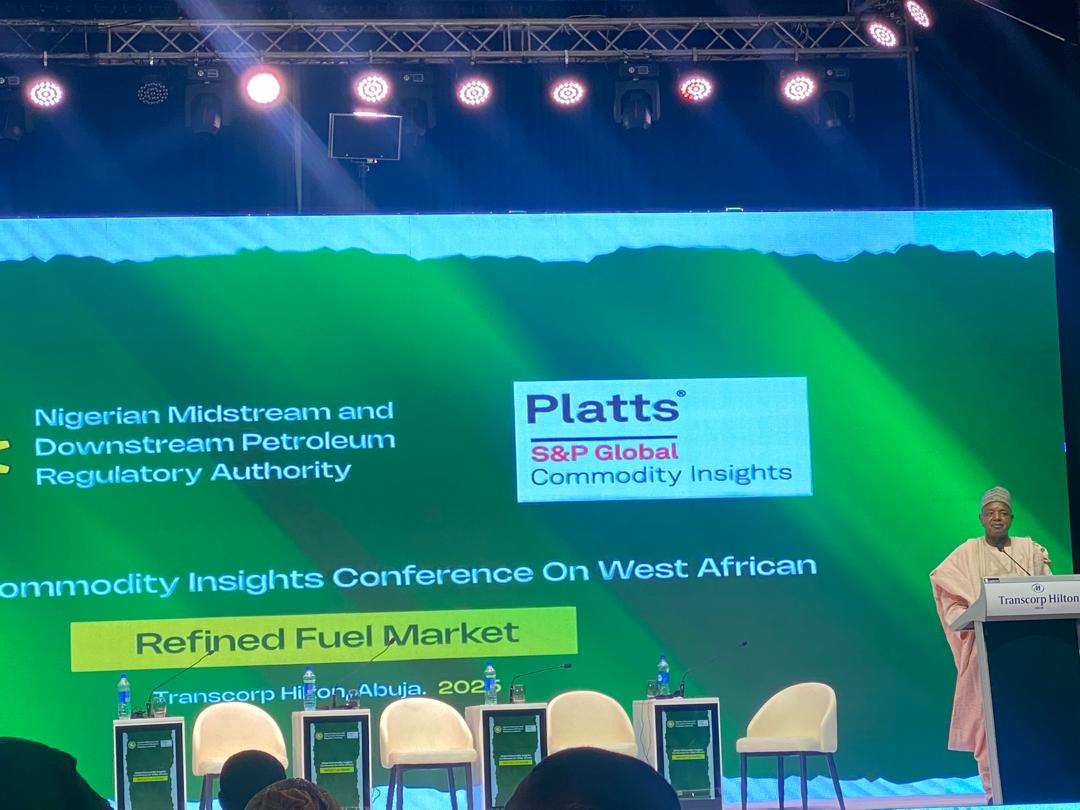
Senator Abubakar Atiku Bagudu, Minister of Budget & Economic Planning
Closing Remarks: Ms. Vera Blei, Head of Market Reporting & Trading Solutions, S&P Global Commodity Insights
Key Takeaways:
- Projected a steep rise in African energy demand, urging proactive infrastructure development.
- Called on all stakeholders to unite in making West African reference pricing a reality.
- Thanked NMDPRA for its partnership and affirmed S&P’s commitment to providing the needed tools, insights, and methodologies.
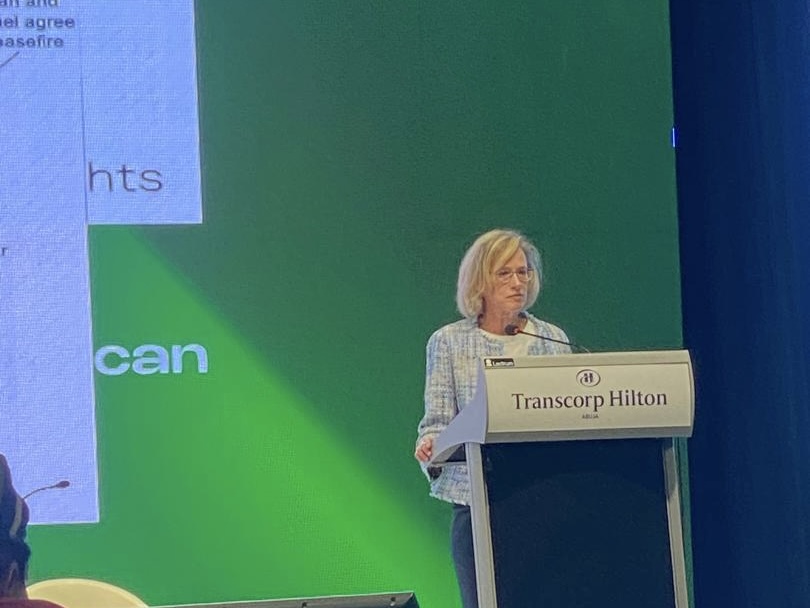
Ms. Vera Blei, Head of Market Reporting & Trading Solutions, S&P Global Commodity Insights
Conference Summary: Prof. Zainab Gobir, Executive Director, ERSP, NMDPRA
Prof. Gobir outlined four Strategic Pillars for establishing a West African Reference Trading Hub:
- Refining Capacity & Supply Capabilities
- Ensure refineries operate optimally.
- Establish regional production tracking and compliance systems.
- Align regulatory policies to attract refining investments.
- Logistic Networks, Storage & Operational Excellence
- Upgrade ports, pipelines, and storage infrastructure.
- Implement ECOWAS corridors (e.g., Abidjan-Lagos Highway).
- Encourage regional DFIs and private sector to finance infrastructure gaps.
- Regulatory Alignment
- Harmonize frameworks and incentives across ECOWAS.
- Target: Regional Agreement by Q4 2025.
- Robust Regional Pricing Mechanisms
- Develop standardized, transparent, and harmonized pricing templates for refined products.
Call to Action: Prof. Gobir urged all stakeholders to “walk the walk and talk the talk,” committing to execution from 2025 to 2030
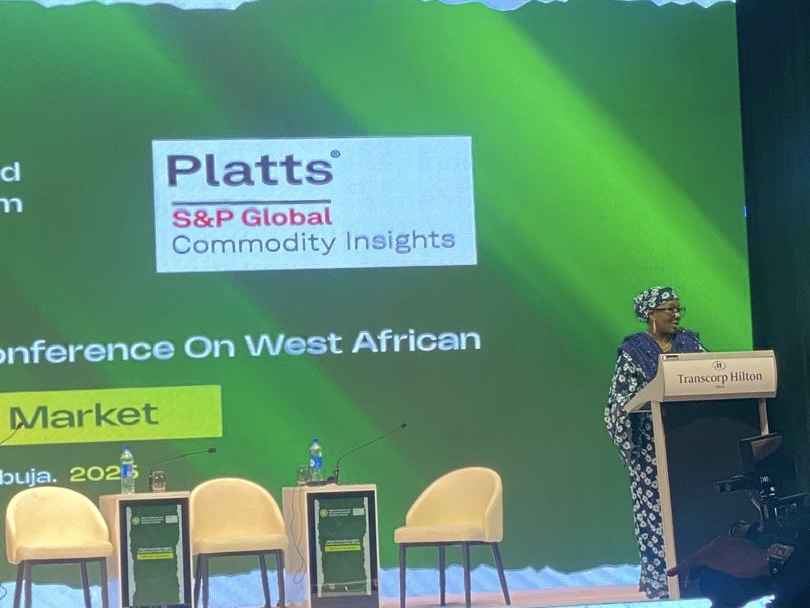
Prof. Zainab Gobir, Executive Director, ERSP, NMDPRA
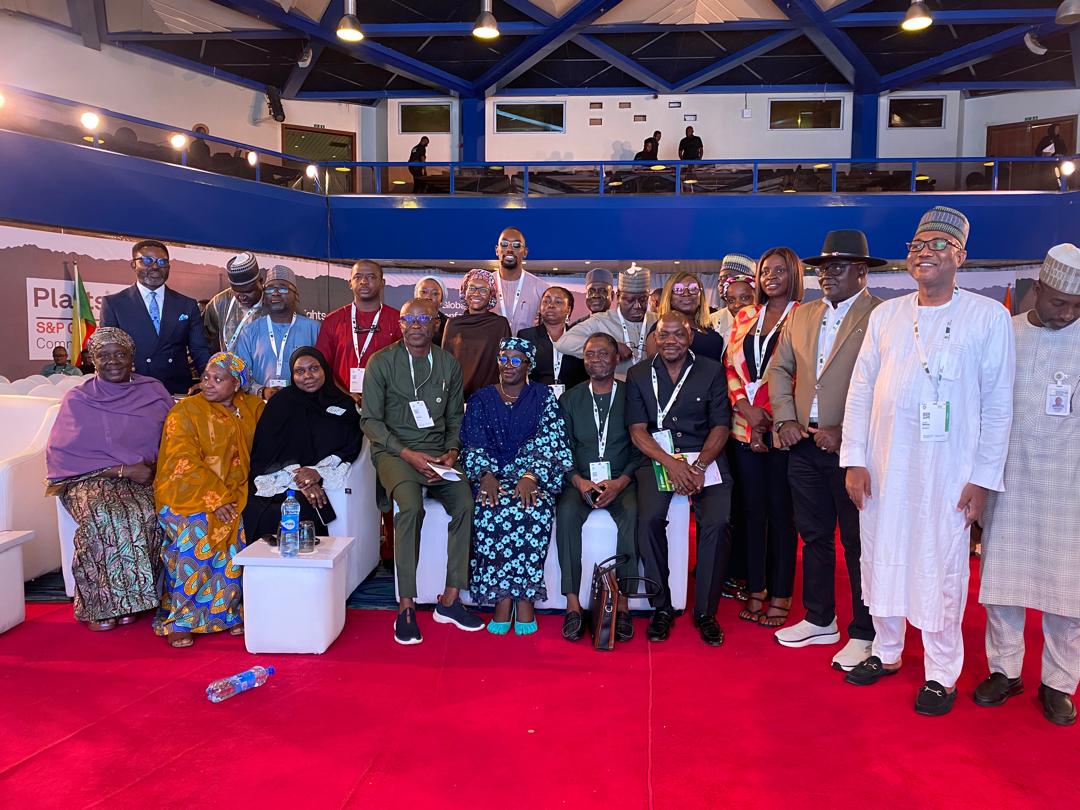
Prof. Zainab Gobir, ED ERSP, NMDPRA and her team
Closing Address: Engr. Farouk A. Ahmed, FNSE, Authority Chief Executive, NMDPRA
Key Messages:
- Thanked delegates and recognized President Tinubu for granting NMDPRA full independence.
- Reaffirmed NMDPRA’s commitment to responsible regulation with confidence and transparency.
- Acknowledged challenges but insisted on adherence to law, persistence, and clarity.
Strategic Points:
- Called for regional regulatory compliance to unlock global competitiveness.
- Highlighted trading volumes and stressed the need for a regional price benchmark.
- Urged local trading and bunkering development, replacing offshore activities.
Collaborations:
- Recognized support from Ministries of Finance, Trade, Petroleum, and Planning.
- Emphasized regional and international partnerships, with over 12 African countries and representatives from the U.S., U.K., and Russia in attendance.
Final Note:
- Assured continuity beyond the conference. “This will not be a one-off. We are committed to the long haul.”
- Called for the establishment of a Pan-African Regulatory Coalition to drive harmonized specifications, pricing, and sustainable trade.
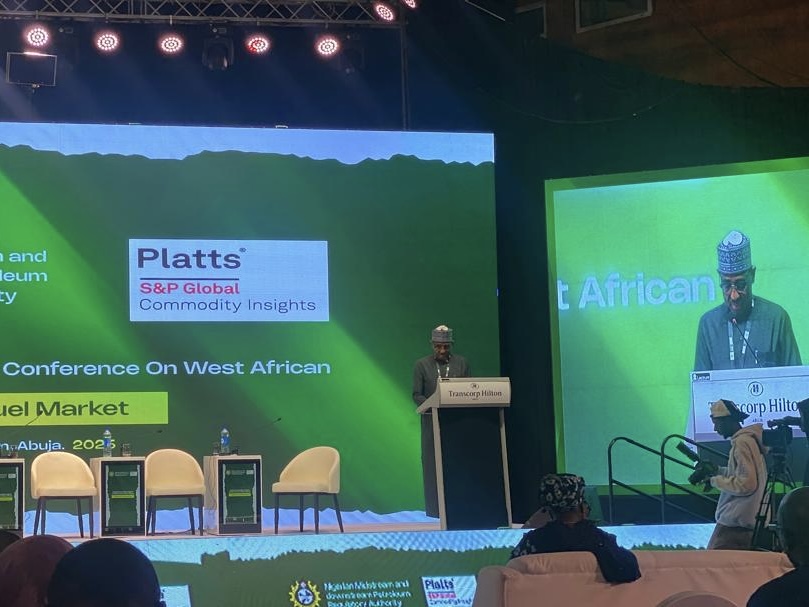
Engr. Farouk A. Ahmed, FNSE, Authority Chief Executive, NMDPRA
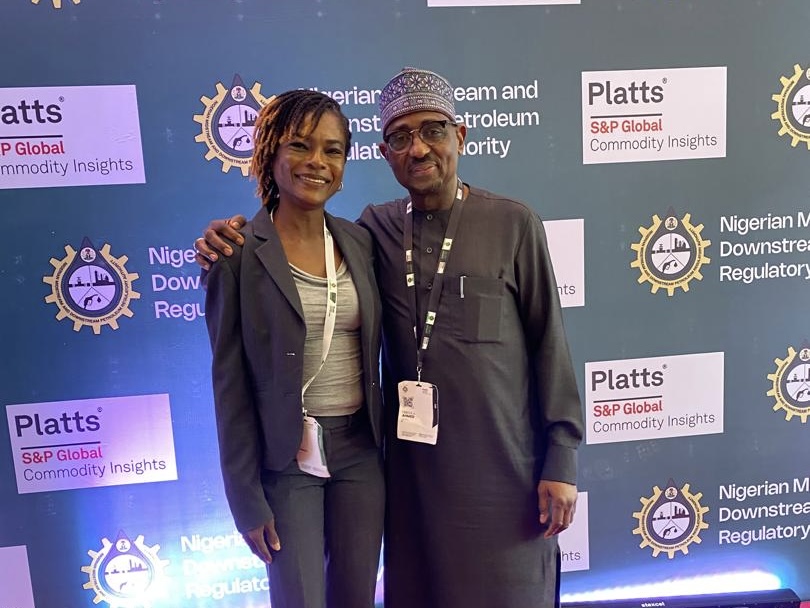
Left to right – Mrs. Ogechi Nkwoji, Head Economic Intelligence, Research and Regulation, MEMAN | Engr. Farouk A. Ahmed, FNSE, Authority Chief Executive, NMDPRA
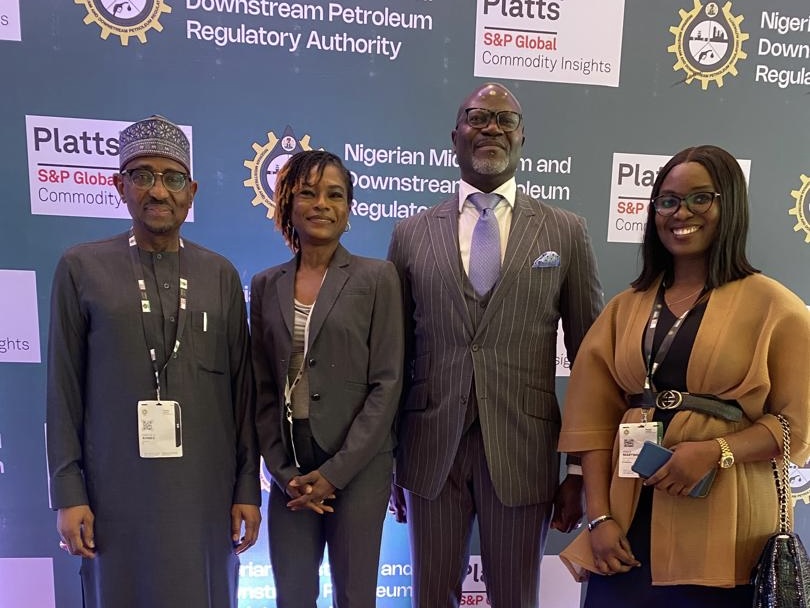
Left to right – Mrs. Ogechi Nkwoji, Head Economic Intelligence, Research and Regulation, MEMAN | Engr. Farouk A. Ahmed, FNSE, Authority Chief Executive, NMDPRA | Mr. Anibor Kragha, Executive Secretary, ARDA | Ms. Peace Martins, Operations, North-West Petroleum
